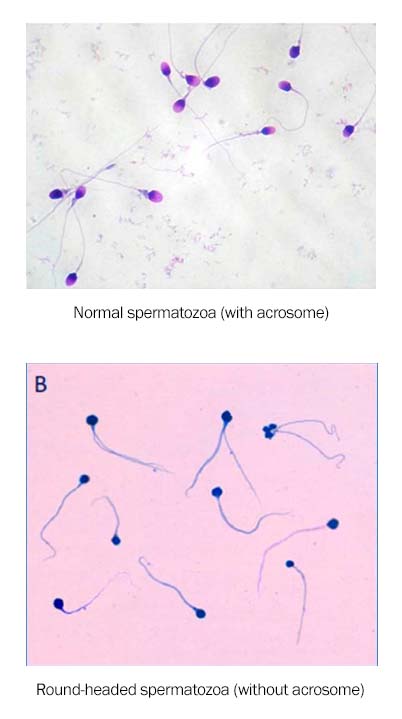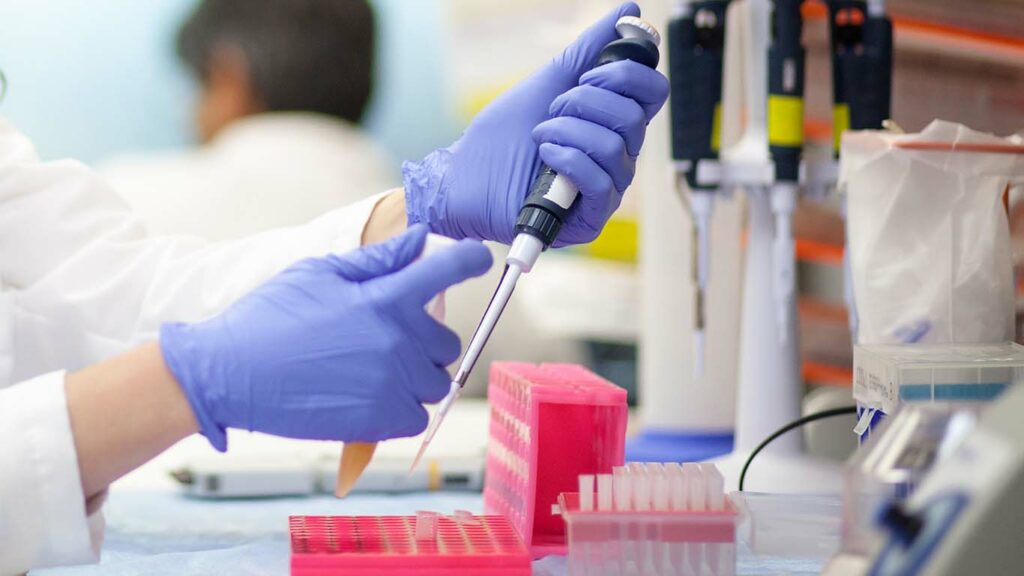A significant number of cases of male infertility are caused by spermatozoa morphological defects that affect the fertilizing capacity. One of these conditions is globozoospermia, characterized by the rounded shape of the sperm heads due to the absence of acrosome, representing 0.1% of all cases of male infertility. Although assisted reproduction allows many couples with fertility problems to conceive, it is important to know the genetic cause for improving the outcome of the reproductive treatment and determining the risk of future progeny.

Now a group of researchers from the Puigvert Foundation (Dr. Lluís Bassas and Dr. Olga López-Rodrigo) and the University of Granada (Dr. Lara Bossini-Castillo and Dr. David Carmona), led by the IDIBELL team of Dr. Sara Larriba shows the usefulness of genome-wide association studies (GWAS) from large-scale genotyping data as an advantageous strategy to identify the molecular cause of globozoospermia in two siblings from a non-consanguineous family.
 This genetic study allowed the identification of the first case in globozoospermic patients of compound heterozygosis for two different mutations in the DPY19L2 gene. In other words, these patients have both alleles of the gene-altered by different mutations. This suggests that mutations in DPY19L2 could be responsible for the cases of globozoospermia in non-consanguineous families for which the molecular cause is still unknown.
This genetic study allowed the identification of the first case in globozoospermic patients of compound heterozygosis for two different mutations in the DPY19L2 gene. In other words, these patients have both alleles of the gene-altered by different mutations. This suggests that mutations in DPY19L2 could be responsible for the cases of globozoospermia in non-consanguineous families for which the molecular cause is still unknown.
Dr. Sara Larriba, a principal investigator of the IDIBELL human molecular genetics research group and leader of the work, concludes: “The GWAS-genotyping technique could be a much more cost-effective alternative than the complete genome sequencing, especially for those pathogenic variants that complete sequencing cannot detect, such as those related to segmental duplications or pseudogenes, as occurs in the DPY19L2 gene”. This strategy can be applied in similar contexts in the genetic study of families affected by other congenital diseases.
The Bellvitge Biomedical Research Institute (IDIBELL) is a biomedical research center created in 2004. It is participated by the Bellvitge University Hospital and the Viladecans Hospital of the Catalan Institute of Health, the Catalan Institute of Oncology, the University of Barcelona and the City Council of L’Hospitalet de Llobregat.
IDIBELL is a member of the Campus of International Excellence of the University of Barcelona HUBc and is part of the CERCA institution of the Generalitat de Catalunya. In 2009 it became one of the first five Spanish research centers accredited as a health research institute by the Carlos III Health Institute. In addition, it is part of the “HR Excellence in Research” program of the European Union and is a member of EATRIS and REGIC. Since 2018, IDIBELL has been an Accredited Center of the AECC Scientific Foundation (FCAECC).

